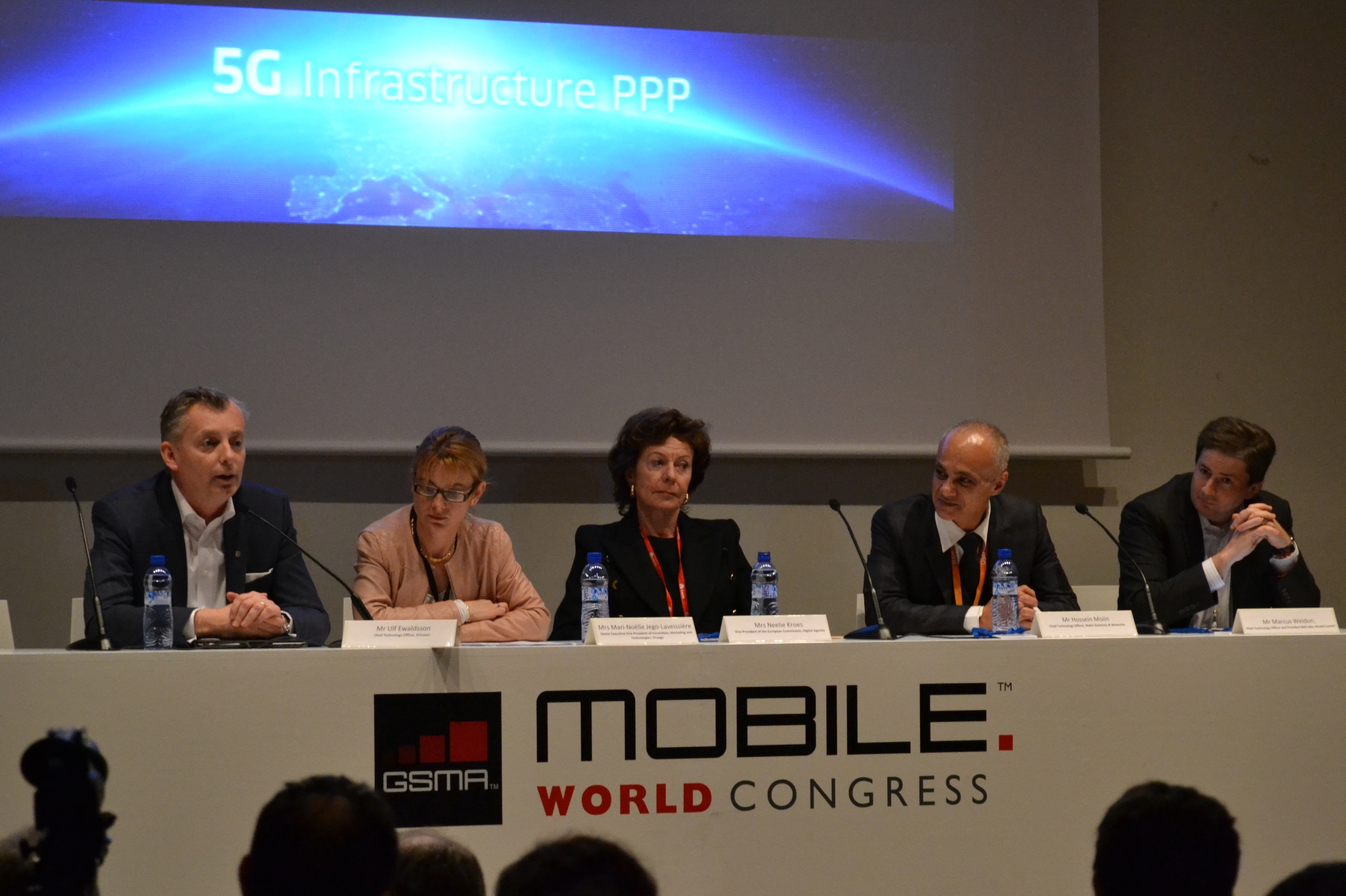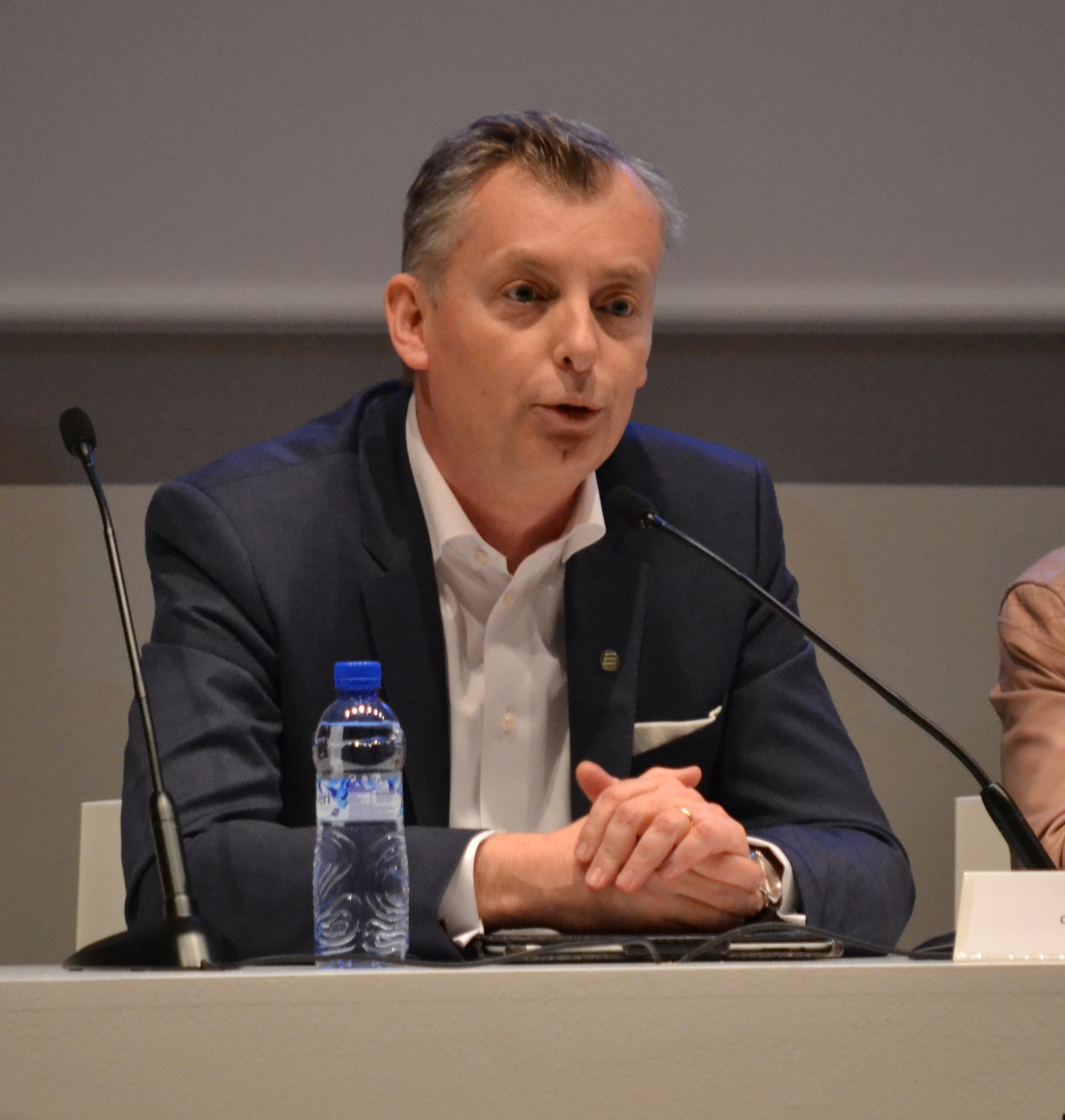Mobile World Congress 2014 Event Coverage
The road to 5G
The future of mobile is 5G, and Europe hopes to lead the way toward tomorrow. The 5G Public-Private Partnership Association (5GPPP) is a Europe-based group charged with defining and bringing about 5G mobile. Top leadership from Ericsson, Bell Labs/Alcatel-Lucent, NSN, Orange, and the European Union gave a press conference at Mobile World Congress to formally launch the 5GPPP and talk about the future.
One key takeaway: 5G can’t be defined like 4G was, and anyone who says they know what 5G will look like is lying. Still, some preliminary outlines can be sketched in. Dynamic resource availability, pervasive connectivity, and heterogeneous networks will all play a role.

Members of the 5GPPP
European Commissioner Neelie Kroes described mobility as a tool to save a potentially lost generation—that is, the large groups of jobless European youth whose future looks bleak. She asked the media to help “in communicating to the outside world why we are talking about these issues,” and said “there is a future or there isn't…We have to act."


On the left, Ulf Ewaldsson, CTO, Ericsson, discusses 5G at the launch of the 5GPPP. On the right, European Commissioner Neelie Kroes asserts that mobility can help young Europeans.
Kroes also took time to emphasize the importance of flattening the 20-plus European telecom fiefdoms into a single market. Telecom is the only market in the EU that isn’t unified, she said. When asked about the security implication raised by unifying the telecom fabric in Europe, Kroes seemed uninterested in wading into those waters, and responded only by saying, "Spying is the second oldest profession."



















